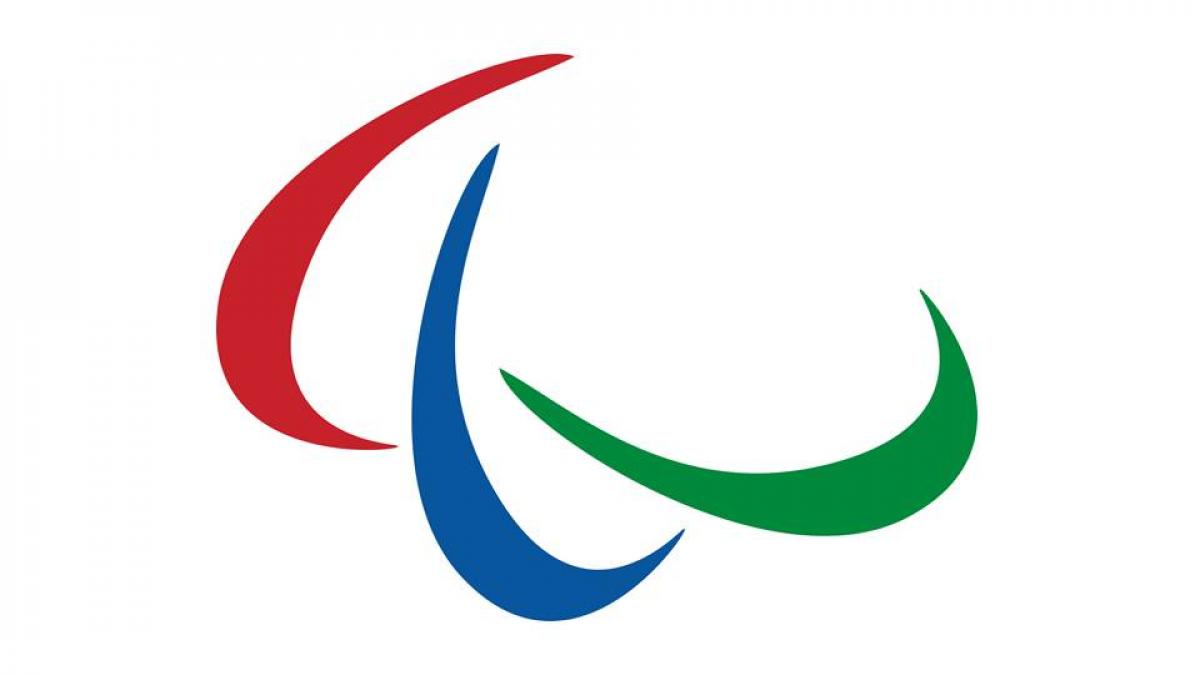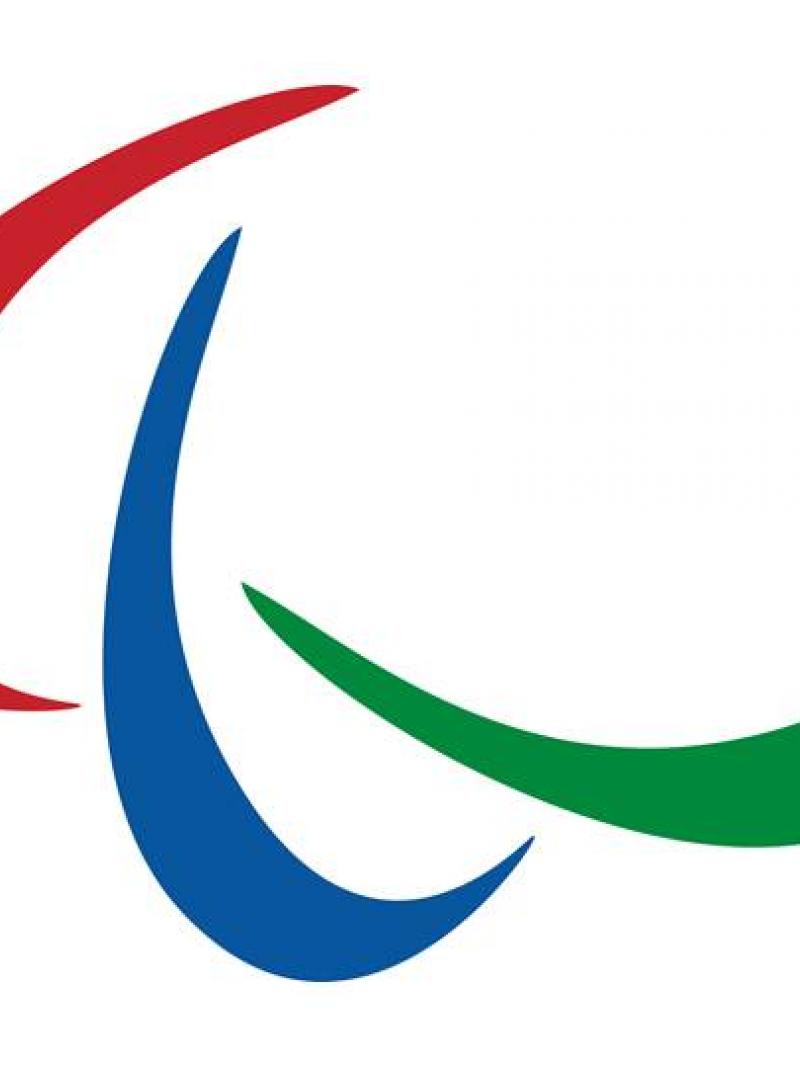IPC Governing Board elections Q&A: Part 3
President and Vice President candidates talk about changes they would make to the IPC if elected. 25 Aug 2017
Official logo of the International Paralympic Committee.
In just two weeks’ time on 8 September, the IPC membership will elect a new IPC Governing Board at the 18th IPC General Assembly in Abu Dhabi, UAE.
Four candidates are aiming to succeed Sir Philip Craven as IPC President - Patrick Jarvis, Andrew Parsons, John Petersson and Haidi Zhang – while two people are standing for the role of Vice President – Duane Kale and John Petersson.
Since Wednesday (23 August) Paralympic.org has been publishing answers to a series of questions asked of the President and Vice President candidates in order to give the IPC membership a greater insight into who is standing for election.
On Wednesday, candidates were asked: “What is your vision for the future of the IPC and the Paralympic Movement? What does success look like for the IPC during the next four years?”
Thursday’s question was: “Where do the IPC and Paralympic Movement’s strengths lie and how do you plan to maximise these strengths during your time in office?”
Friday’s question and unedited answers are below.
Question 3: What are the biggest changes you propose to make to the IPC and Paralympic Movement if elected?
Patrick Jarvis
My intention is evolution not revolution. There is an exceptionally strong foundation with growth and development across our community, which includes strong leadership at a number of levels. However, I believe that we must better serve our community through better governance, with clear roles and responsibilities for the IPC Governing Board, committees and members, fully utilizing everyone’s abilities. Utilizing strengths also means that the IPC ensures a collaborative environment where the IFs, IOSDs, Regions and NPCs can effectively engage, contribute and benefit from a more inclusive and stronger governance framework.
This would start with a thorough and independent assessment to learn about the governance best practices of highly respected organizations around the world. We would then move to implement the identified leading practices that would best serve our collective needs. It is timely and appropriate given that it is been well over a decade since we implemented new governance structures and processes.
Again, there must be no doubt about the integrity of our sports and our organization. It is, of course, essential that we oversee sound and fair competitions with a level playing field assured for all and in all areas. This means that we must take a clear stand against all corruption in sport, on and off the field of play, and work to ensure that there is equal opportunity and access for all individuals within our community aspiring to higher levels of leadership.
On the note of leadership, another change I would like to oversee is ensuring that all IPC Governing Board members are fully engaged and supported, empowering them with authority and accountability to serve those who elected them--the members. There must be a more collective approach, in the style of a true team, to the oversight and leadership of the IPC from the highest decision-making authority, which is the Governing Board.
Duane Kale
Those who have gone before us have set us on the right direction. The task now is to speed up the reaction so that the IPC logo is instantly recognisable around the world.
Influence key people in order to be considered as a critical partner of the IOC, by the IOC, for the success and legacy of the Summer and Winter Games.
Andrew Parsons
1. An Organisation for all
At the heart of what I propose is to ensure the IPC is an open and collaborative organisation, one that understands and addresses the different needs of its members at all levels, not only for a few, and provides the right tools to help nurture and develop emerging members. I will create a Membership Development Pathway – one that is flexible and tailored to local needs.
2. Athlete’s at the centre of everything we do
I want to give athletes a greater voice. I will create mechanisms where athletes can express their voices, in their own language whenever possible, respecting their cultural values. Open Forums will be established, so athletes will have opportunity to interact directly with IPC leadership.
3. A stronger relationship with the IOC
The IOC is our biggest partner and the ‘One City – Two Games’ model allows the IPC to provide the athletes with the best possible platform to inspire the world. It is vital the IPC continues to strengthen relations with the IOC whilst also preserving our identity and distinctive elements. It is only by working together that we can reach the true potential of this partnership, including at regional and national levels. I have a great network within the Olympic Movement and the IOC itself, being part of two of its commissions and working with it to face the challenging circumstances of the Rio 2016 Games. I have no doubt that I can build bridges where they still do not exist and strengthen the already established partnerships.
4. Unlocking the movement’s untapped development and commercial potential
I want to focus our efforts on building a revitalised marketing model for the Paralympic Movement. As part of this, I will explore how the IPC can secure more ‘top tier’ global sponsorship agreements, deepening our relationship with broadcasters and better supporting NPCs and IFs with their broadcasting strategies. IPC’s approach to them must be of collaboration, understanding their challenges and working together to identify opportunities.
5. Professionalise the athlete classification system
Classification is the starting point for any fair competition in the Paralympic Movement and as IPC President, I want to explore the introduction of a professional classification process. By professionalising our classifiers, this will enable performances to be monitored, improve accountability to international federations, and increase availability of classifiers for national competitions worldwide. I will also encourage the use of technology to support evidence based classification systems. The Paralympic movement is more relevant today. Therefore, classification process must be transparent, reliable and understandable to the outside world. With the right changes, I see the potential of classification becoming an asset to the Movement, rather than something that can affect its credibility.
6. A fairer competition fee structure
I understand the challenges facing many developing countries and, if elected President, I am committed to restructuring current competition fees to ensure more athletes can compete at IPC major events. We already have a good membership fee policy in place, where members in different development levels pay different fees.
John Petersson
Having been an athlete, a businessman and leader within the Paralympic Movement, I believe that I understand the needs of our Movement. Combined with the input I have received by talking with our members, I believe that there are two clear areas which we need to focus on moving forward.
First, I would say a more transparent communication and better collaboration with all the IPC Member organisations. It is clear that the IPC’s main role is to serve and strengthen its membership at all stages of their development. Therefore, I will make sure that all NPCs, IOSDs and Sport Federations benefit from the Movement’s overall development. This means having a voice and taking part in the decision-making process that affects our future.
Secondly, I plan to support the introduction of independent, but aligned and centrally supported sub-regional development structures. I am convinced that these collaboration structures, as they were successfully tested during my EPC Presidency, will ensure that smaller NPCs and smaller sports are able to create the necessary critical mass of athletes and resources to take their next step of development.
At the same time, larger NPCs and more established Sports will be able to professionalise their own structures, and they will benefit from new pathways towards the Paralympic Games.
Haidi Zhang
Our greatest challenge and the biggest change I propose is to extend the reach of the Movement to every part of the globe. One of my priorities will be to bring more youth, women and girls, and our fellows from developing countries and regions to participate in sport. I will increase the number of athletes, improve their performance, and make the Games fairer, cleaner and more transparent.
To achieve such goal, I will propose a scientific approach to manage the IPC, through ways such as creating big data, build up a more united and cooperative Paralympic Family, and facilitate the popularization and balanced development of the Movement.
Meanwhile, I will exert myself to expand the scale of the Games and increase the number of sports, especially in the Winter Games, so as to make the Games more attractive and more profitable by raising the ticket sales. The Paralympic legacy should also be preserved and utilized sustainably.
Saturday’s final question to candidates is: “What more can be done to grow and develop the Paralympic Movement in the coming years?"
In addition to the written answers, each candidate has answered a series of questions on video posed by BBC Sport and Deutsche Welle.
To views the videos in full, please click on the links below:
Presidential candidates
Vice Presidential candidates
The IPC Governing Board will consist of one President, one Vice President and 10 Members at Large and all will be elected by the IPC membership which consists of National Paralympic Committees, International Sport Federations, International Organisations of Sport for the Disabled (IOSDs) and Regional Organisations. In addition to the elected members, Chelsey Gotell, Chairperson of the IPC Athletes’ Council and Xavier Gonzalez, IPC Chief Executive Officer, are ex-officio members of the Governing Board, although only Gotell has a vote.
Twenty one candidates have been nominated for Member at Large positions.
On 6 September each candidate will have the opportunity to make a presentation on their candidature to the IPC membership attending the IPC General Assembly in Abu Dhabi.
Media accreditation for the IPC General Assembly can be applied for here.






